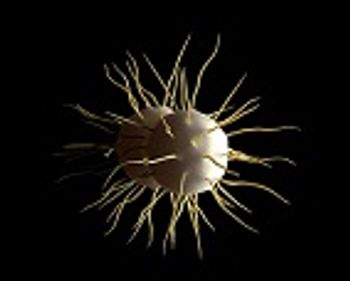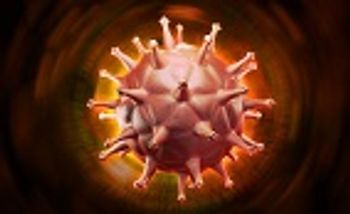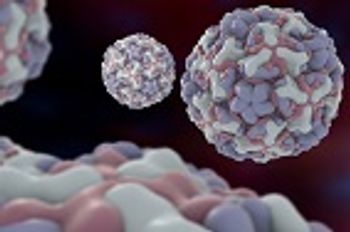
Thanks to the recently approved $1.1 billion in federal funding to support Zika virus-related efforts, various government agencies are ramping up efforts to develop novel vaccines designed to prevent infection.

Thanks to the recently approved $1.1 billion in federal funding to support Zika virus-related efforts, various government agencies are ramping up efforts to develop novel vaccines designed to prevent infection.

The FDA has released a warning on the risk of reactivation of hepatitis B virus in some patients receiving direct-action antivirals to treat hepatitis C infection.

Gonorrhea may soon become untreatable with current antibiotics, according to recent research presented at the Centers for Disease Control and Prevention's 2016 STD Prevention Conference.

The Centers for Disease Control and Prevention (CDC) has updated its interim guidance for “pre-pregnancy counseling” for Zika virus, just as new information regarding sexual transmission of the infection has been made available.

Gilead Science’s hepatitis C (HCV) drugs are forecasted to plummet in future years, according to a recent report.

A 44-year-old man from Britain could become the first patient ever to be cured of HIV, thanks to a groundbreaking new therapy developed to eradicate the virus.

The National Institutes of Health (NIH) has provided funding of $24 million this year to the Adolescent Medicine Trials Network for HIV/AIDS Interventions, the first clinical research group that will focus on youth infected by HIV.

Current traditional culture methods can take up to three days to identify bacteria and test antimicrobial resistances from a urine sample.

Recent research suggests those who are physically active may have a lower risk of bacterial infections than those who live a sedentary lifestyle.

Researchers at the University of Zurich and the University Hospital-Zurich have made a discovery that may contribute to the development of an effective HIV vaccine.

Can a vaccine be developed for human rhinovirus in its many forms? A new study suggests that it is possible.

For the last six years Haiti has been fighting a severe cholera epidemic and it is unlikely that the fight will end soon.

According to newly published research, high levels of zinc changes microbiota in the gut decreasing resistance to infections from Clostridium difficile.

The transdermal vaccine route offers an opportunity to improve vaccine administration.

At this year’s annual National Foundation for Infectious Diseases news conference on influenza and pneumococcal disease, the message was clear as health experts issued a resounding call for all Americans 6 months of age and older to get their flu shot.

Just when residents in the Miami area thought the need to fear mosquito-borne viruses was over, Florida health officials revealed that they have identified a locally-transmitted case of Dengue virus.

Authors of a recent review article discuss how the Leishmania parasite interacts with the immune system of its mammalian host, and how these interactions affect both the parasite and the host.

As individual nations attempt to make meaningful progress on stemming antibiotic use, a troubling new study shows that hospitals in the United States have continued to dispense antibiotics at a steady rate in recent years.

In a recent Morbidity and Mortality Weekly Report, the Centers for Disease Control and Prevention and US Department of Health and Human Services share two reports that specifically focus on men who have sex with men (MSM) living with HIV.

Mark Zuckerberg and his wife Priscilla Chan are contributing over $3 billion towards the eradication of all diseases.

Researchers at Stanford University School of Medicine have potentially added to existing knowledge with regard to how Zika virus affects the developing fetal brain.

State health departments in Minnesota and Washington are on the alert after recent outbreaks of Legionnaire’s disease.

Congressional leaders brokered a compromise Wednesday that keeps the government running, provides financial relief to the beleaguered city of Flint, Michigan, and finally funds Zika prevention efforts.

The Centers for Disease Control and Prevention is investigating a multi-state outbreak of Shiga toxin-producing Escherichia coli O157:H7.

Babies born to mothers infected with the Zika during pregnancy may have the virus in their systems for more than 2 months after birth.

The US Food and Drug Administration (FDA) is designating Sansaria PfSPZ, a malaria vaccine, to the “fast track” a move that will expedite the process for the drug, now in review.

Despite the ongoing funding stalemate in Congress, several research initiatives hoping to yield an effective vaccine against Zika are advancing through the development process.

The Centers for Disease Control and Prevention warn infections from the consumption of raw milk and products made from raw milk will increase, especially in states where raw milk is legal.

A recent report from the Centers for Disease Control and Prevention (CDC) shows influenza viruses currently in circulation in the United States are the same as anticipated by vaccine makers, hopefully signaling effectiveness ahead for 2016-2017 Northern Hemisphere influenza vaccines.

After plaguing much of Brazil and the Caribbean since late 2014, the Zika virus “crisis”—such as it is—seems to have migrated eastward—far eastward.